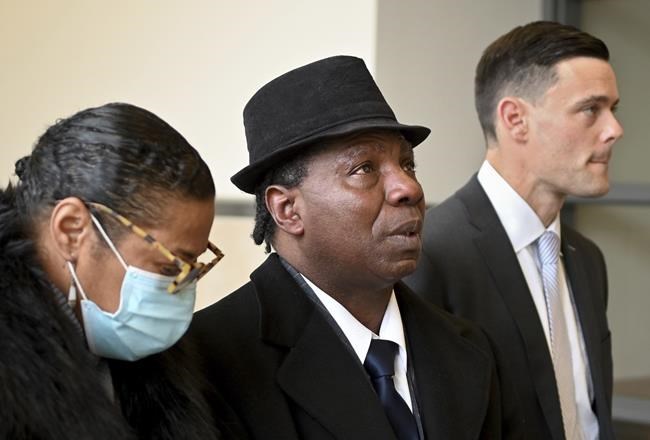NEW YORK (AP) — Author Alice Sebold apologized Tuesday to the man who was exonerated last week in the 1981 rape that was the basis for her memoir “Lucky" and said she was struggling with the role she played “within a system that sent an innocent man to jail.”
Anthony Broadwater, 61, was convicted in 1982 of raping Sebold when she was a student at Syracuse University. He served 16 years in prison. His conviction after prosecutors reexamined the case and determined there were serious flaws in his arrest and trial.
In a statement released to The Associated Press on Tuesday, Sebold, the author of the novels “The Lovely Bones” and “The Almost Moon," said that as a “traumatized 18-year-old rape victim” she chose to put her faith in the American legal system.
“My goal in 1982 was justice – not to perpetuate injustice,” Sebold said. “And certainly not to forever, and irreparably, alter a young man’s life by the very crime that had altered mine.”
Melissa Swartz, an attorney for Broadwater, said he had no comment on Sebold's statement.
Sebold wrote in 1999's “Lucky” of being raped and then spotting a Black man in the street several months later who she believed was her attacker.
Sebold, who is white, went to police. An officer said the man in the street must have been Broadwater, who had supposedly been seen in the area.
After Broadwater was arrested, Sebold failed to identify him in a police lineup, picking a different man as her attacker because she was frightened of “the expression in his eyes.”
But prosecutors put Broadwater on trial anyway. He was convicted based largely on Sebold identifying him as her rapist on the witness stand and testimony that microscopic hair analysis had tied him to the crime. That type of analysis has since been deemed junk science by the U.S. Department of Justice.
Broadwater, who was released from prison in 1998, told the AP last week he was crying “tears of joy and relief” after his conviction was overturned by a judge in Syracuse.
Sebold, who has not previously commented on Broadwater's exoneration, said in her statement, “I am grateful that Mr. Broadwater has finally been vindicated, but the fact remains that 40 years ago, he became another young Black man brutalized by our flawed legal system. I will forever be sorry for what was done to him."
Broadwater remained on New York’s sex offender registry after he was released from prison and has worked as a trash hauler and a handyman.
“It has taken me these past eight days to comprehend how this could have happened," said Sebold, now 58. "I will continue to struggle with the role that I unwittingly played within a system that sent an innocent man to jail. I will also grapple with the fact that my rapist will, in all likelihood, never be known, may have gone on to rape other women, and certainly will never serve the time in prison that Mr. Broadwater did.”
Karen Matthews, The Associated Press


